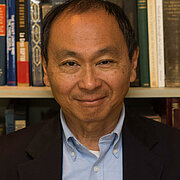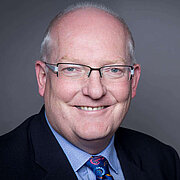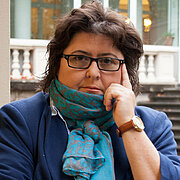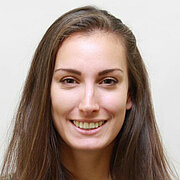What lessons can we draw from 1989 to cope with current challenges?
Thirty years ago the Berlin Wall fell, ending the division of an entire continent. A new optimism about the future took hold: liberal democracy was on the march and Francis Fukuyama’s thesis of “the end of history” pointed the way ahead. Today, the hopeful mood of 1989 has been replaced by gloom. Liberal democracies are challenged by internal and external voices. What lessons can we draw from 1989 to cope with current challenges? How should we handle today’s uncertainty to protect democracy tomorrow?
Words of welcome
Henrik Enderlein, President, Hertie School
Marianne Heuwagen, Deputy Chairwoman of the Board of Directors, Villa Aurora & Thomas Mann House e.V.
Keynote speaker

Francis Fukuyama is the Olivier Nomellini Senior Fellow at the Freeman Spogli Institute for International Studies (FSI), the Director of the Ford Dorsey Master's in International Policy, and the Mosbacher Director of FSI's Center on Democracy, Development, and the Rule of Law (CDDRL) at Stanford University. He is also a professor by courtesy in the Department of Political Science. He was previously at the Paul H. Nitze School of Advanced International Studies (SAIS) of Johns Hopkins University, where he was the Bernard L. Schwartz Professor of International Political Economy and director of SAIS' International Development program.
Fukuyama has written widely on issues relating to questions concerning democratization and international political economy. His book, The End of History and the Last Man, was published by Free Press in 1992 and has appeared in over twenty foreign editions. His most recent book is Political Order and Political Decay: From the Industrial Revolution to the Globalization of Democracy. (Image: Stanford University).
Panel discussion

Thomas Kleine-Brockhoff is Vice President and Director of the Berlin Office of The German Marshall Fund of the United States. As a vice president at the German Marshall Fund of the United States he oversees the organization’s activities in Germany. Prior to joining GMF, he served as an advisor to Joachim Gauck, the federal president of Germany. From 2013-17, he oversaw policy planning and speechwriting for the president.

Alina Mungiu-Pippidi is Professor of Democracy Studies at the Hertie School in Berlin. Her research centres on anti-corruption policy and good governance. Mungiu-Pippidi chairs the European Research Centre for Anti-Corruption and State-Building (ERCAS) where she manages the FP7 research project ANTICORRP, and the Horizon 2020 project DIGIWHIST. Her governance work is cited and applied by a string of development organisations, by some EU governments and the European Commission.
Moderator

Kristina Hatas holds a Bachelor's degree in Political Science and Law from University of Münster and a Master of Laws in Public International Law from the University of Groningen. She is currently a second year student in the International Affairs programme at the Hertie School and a Research Assistant to Prof. Başak Çalı for International Human Rights Law. In addition to her studie she has interned at the Swedish Ministry for Foreign Affairs and Amnesty International.
About the event series 'The Backlash Against Liberal Democracy'
This event is part of the series “The Backlash Against Liberal Democracy” launched by the German Marshall Fund of the United States, Villa Aurora/Thomas Mann House e.V., and the Robert Bosch Stiftung. The series brings together influential voices from Europe and the United States to shed light on different aspects of the challenges that liberal democracies face. Speakers so far have included historian Timothy Snyder from Yale University as well as political scientist Daniel Ziblatt from Harvard University. This event is organized in cooperation with and generously supported by the Hertie School.


